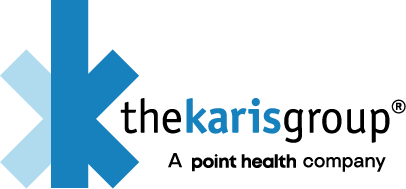Have you ever opened the mail and discovered an outrageous medical bill that you were not prepared for? Well, you are not alone. We were founded 23 years ago from a similar situation, when our founder, Dr. Tony Dale, was misled on the cost of his knee surgery. He took control and negotiated his medical bill down to a fair amount. Ever since then, we have been helping others do the same.
Our team of patient advocates negotiate directly with providers to help reduce inflated out-of-pocket costs. Our advocates are highly skilled in bill negotiation strategies, such as negotiating with hospital decision-makers, repricing out-of-pocket balances, and guiding patients through financial assistance programs or charity care programs. On average, we save between 40%- 70% on out-of-pocket costs.
We’ve compiled a list of five easy tips that we’ve learned in our 20+ years of negotiations that will help you negotiate your medical bill and take control of your medical costs:
1. Request an Itemized Bill.
Patients have the right to request an itemized medical bill for any service that was received. An Itemized medical bill is a detailed statement of each service that was rendered while you were under the care of the physicians or facility and will include the amount your responsible to pay. Our patient advocates review itemized statements to locate any billing errors or erroneous costs at the time of service.
Never pay the bill without reading the statement first. Try to search for items on the bill that could be questionable, such as a shoulder scan for knee surgery.
2. Apply for Financial Assistance:
Depending on what healthcare services you have received, your provider may be able to offer financial assistance or a charity care program. Such programs can assist low-income, uninsured, and underinsured patients with their medical expenses. Standard programs like these can reduce your medical bills or bill by 25%- 100% if you meet the facility's eligibility requirements. Financial assistance or charity programs base their eligibility on the federal poverty guidelines.
3. Prepare a Hardship Letter:
Every patient has a unique story, and over the years we’ve heard some heartbreaking stories from patients we’ve assisted. In our experience, our patients have had success in preparing a hardship letter for each bill negotiation case we support. A hardship letter empowers the patient to write and explain their healthcare experience to their provider. Instances where a hardship letter can be helpful include when the patient was not satisfied with the services rendered or if they are in a financial situation where they cannot afford the medical bill. Establishing open communication with your provider can better your chances for a reduction in your medical expenses.
Once this Hardship Letter is complete, contact your provider’s office manager, business office or billing department for submission. When our patient advocates submit a hardship letter, we present it as an opportunity for patients to explain their side of the story.
4. Settling on a Medical Bill:
In some instances, providers will settle medical bills at a lower amount. The best department to discuss settlement options will be the billing department or an office manager.
Additionally, If you have a scheduled appointment, procedure or are about to have a baby; you can ask your provider to provide an estimate of the healthcare service to prepare yourself financially. After requesting an estimate from your provider, ask if there is an opportunity to settle. Prior to settling a medical bill, ask yourself if you can afford to settle for a one-time payment.
5. Arrange an Affordable Payment Plan
Usually, a provider will work with you on an affordable payment plan. However, you can run into certain providers that will not budge on their payment plan policy; which can lead to higher monthly payments. Being open with your provider on what you can afford monthly throughout the process will be beneficial to you and your provider by establishing transparency and open communication.
We hope these tips are helpful as you negotiate your own medical bill. Our patient advocates have successfully negotiated thousands of medical bills, saving 40% - 70% on out of pocket costs, using these strategies and others. If your employer or health plan does not offer The Karis Group’s services but you need assistance in negotiating a medical bill you can sign up for our individual medical bill mediation service at medicalbillmediation.com or you can ask your HR department to add our services to your benefits package.
Are you a Broker, HR Leader, Finance Leader or do you work for a Health Plan interested in offering our services to your members? Please contact us to receive additional information on how we reduce cost for your employer or employees.
Learn more about our full Karis Cost Containment Services here.


.jpg)


